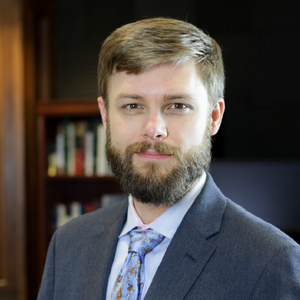
Law & Principles , Culture & the Family
Trent England | April 2, 2020
Shutdowns: What’s the point?
Trent England
Early in the Old Testament, God gives Moses rules for sacrifices. Yet in the Psalms, the value of sacrifices is called into question. And in the New Testament, the experts on those rules get some very harsh treatment. What is going on?
As human beings, we easily confuse ends with means. The rules for making sacrifices were a means—a process—for worshiping God. The end—the purpose—was to glorify God. The purpose was not memorizing rules, checking boxes, or a power trip.
Rules or laws are always a means to some other end. This fact is particularly important amidst a crisis, when governors and mayors are making law by decree. Under normal circumstances, such decrees would be obvious tyranny. In the face of a global pandemic, they may be necessary. But those making the rules, and those enforcing them, should keep the end in mind.
The purpose is to reduce the number of people who will die, or fall grievously ill, from the virus. The means may include shutting down businesses or “social distancing” measures. But shutdowns and misery are not the point, right?
Some people seem confused. The City of Norman demands that a small recycling company shut down. The city’s “shelter-in-place” order seems to exempt waste management companies and there is no indication of any safety risk. But someone in government has decided to zealously enforce their interpretation of the rules.
In my experience, some everyday people are even worse than the bureaucrats. I saw a post on Facebook from a single mom who was verbally attacked in a grocery store for shopping with her child. She had no choice—and children face almost no risk from COVID-19—but some nosy neighbor decided to flaunt her own perceived virtue as a good rule follower. The mother broke down in tears.
A woman on Twitter was upset that some golf courses are still open. I asked her why they should be closed, if they can operate safely (which seems easy for a golf course, and very easy at a traditional driving range). Her answer was that they should be closed because they are “not essential.” In other words, she was focused on rules rather than health.
Sometimes we contrast the “letter of the law” with the “spirit of the law.” Many American patriots justified revolution based on the idea that the British system was failing to achieve its own purpose of providing representation and establishing justice. Others, like Alexander Hamilton, pointed out that all laws must conform to a proper end. He wrote:
“In short, when human laws contradict or discountenance the means, which are necessary to preserve the essential rights of any society, they defeat the proper end of all laws, and so become null and void.”
Stopping the worst ravages of this virus is an important task for all Americans, including our government officials. Carrying out the sacrifices was the essential job of Israel’s priests. In either case, the importance of the task provides no excuse for turning the process into a bureaucracy where the means become more important than the ends.

Trent England
David and Ann Brown Distinguished Fellow
Trent England is the David and Ann Brown Distinguished Fellow at the Oklahoma Council of Public Affairs, where he previously served as executive vice president. He is also the founder and executive director of Save Our States, which educates Americans about the importance of the Electoral College. England is a producer of the feature-length documentary “Safeguard: An Electoral College Story.” He has appeared three times on Fox & Friends and is a frequent guest on media programs from coast to coast. He is the author of Why We Must Defend the Electoral College and a contributor to The Heritage Guide to the Constitution and One Nation Under Arrest: How Crazy Laws, Rogue Prosecutors, and Activist Judges Threaten Your Liberty. His writing has also appeared in the Wall Street Journal, USA Today, Washington Times, Hillsdale College's Imprimis speech digest, and other publications. Trent formerly hosted morning drive-time radio in Oklahoma City and has filled for various radio hosts including Ben Shapiro. A former legal policy analyst at The Heritage Foundation, he holds a law degree from The George Mason University School of Law and a bachelor of arts in government from Claremont McKenna College.